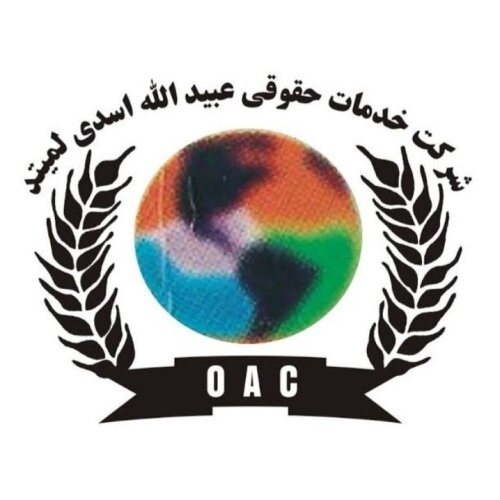Best Business Lawyers in Afghanistan
Share your needs with us, get contacted by law firms.
Free. Takes 2 min.
Or refine your search by selecting a city:
List of the best lawyers in Afghanistan
About Business Law in Afghanistan
Business law in Afghanistan is an emerging field, navigating through the diverse challenges that come with a rapidly developing economy. The business landscape in Afghanistan is rich with opportunities, particularly in sectors such as agriculture, mining, and telecommunications. However, navigating the legal complexities requires an understanding of both local customs and modern legal frameworks. Afghanistan's business law is shaped by various sources, including civil laws, commercial codes, and Islamic legal principles. The government has been working on reforms to create a more business-friendly environment, aiming to attract both local and foreign investment while ensuring compliance with international standards.
Why You May Need a Lawyer
There are several key situations in which a business lawyer would be invaluable in Afghanistan:
- Setting Up a Business: Understanding the requirements for business registration, licensing, and compliance with local laws.
- Contracts: Drafting, reviewing, and negotiating business contracts to ensure they are legally binding and fair.
- Dispute Resolution: Navigating conflicts with business partners, customers, or suppliers through mediation or litigation.
- Employment Law: Ensuring compliance with Afghan labor laws when hiring or terminating employees.
- Intellectual Property: Protecting trademarks, patents, or copyrights within the Afghan market.
- Regulatory Compliance: Assisting with understanding and complying with various regulatory requirements.
- Investments: Legal advice for foreign direct investment and establishing joint ventures.
- Bankruptcy and Insolvency: Guiding businesses through financial difficulties and restructuring.
- Insurance: Navigating claims and disputes with insurance providers.
- Mergers and Acquisitions: Legal oversight in the buying, selling, or merging of businesses.
Local Laws Overview
Afghanistani business law encompasses several key areas:
- Commercial Code: Governs business transactions and structures. This includes partnerships, corporations, and sole proprietorships.
- Contract Law: Establishes the legality and enforceability of agreements.
- Taxation: Businesses must comply with tax regulations, including income tax, sales tax, and customs duties.
- Labor Law: Protects workers' rights, employment conditions, and workplace safety.
- Property Law: Covers real estate transactions, leases, and land use.
- Investment Law: Specific provisions to encourage and regulate foreign investment.
- AML and CFT Regulations: Anti-money laundering (AML) and combating financing of terrorism (CFT) obligations for businesses.
Frequently Asked Questions
What are the first steps to start a business in Afghanistan?
First, you need to decide on a business structure, register your business with the Afghanistan Central Business Registry, and obtain the necessary licenses and permits. It's recommended to consult with a local business lawyer to ensure compliance with all regulations.
How does Afghanistan protect foreign investments?
The Afghanistan Investment Support Agency (AISA) provides protection and support for foreign investments, including guarantees for repatriation of profits and protection against nationalization.
What taxes do businesses in Afghanistan need to be aware of?
Businesses must be aware of corporate income tax, sales tax, customs duties, and potentially other local taxes depending on their operations.
Are there restrictions on foreign ownership of businesses?
While foreign ownership is generally permitted, certain sectors may have restrictions, and compliance with the Investment Law is necessary.
What should a business do in case of a legal dispute?
It's advisable to contact a legal professional to explore options for mediation or litigation, depending on the situation.
How are employment relationships regulated?
Employment relationships are governed by Afghan labor laws, which cover minimum wage, worker safety, and contract stipulations. Legal guidance ensures compliance with these laws.
Is arbitration a common method for resolving business disputes?
Yes, arbitration is often used due to its efficiency and is recognized under Afghan law as a valid resolution method.
What are the intellectual property laws in Afghanistan?
Intellectual property laws exist to protect trademarks, patents, and copyrights, but their enforcement can be challenging without adequate legal support.
How can one ensure a contract is legally binding in Afghanistan?
To ensure a contract is legally binding, it should be drafted with clear terms in compliance with Afghan laws, and it is recommended to have it notarized.
What are the penalties for non-compliance with business regulations?
Penalties can include fines, revocation of licenses, and other legal actions. Ensuring compliance with regulatory requirements is critical to avoid these penalties.
Additional Resources
For further assistance, the following resources may be helpful:
- Ministry of Industry and Commerce: Provides information on business regulations and compliance.
- Afghanistan Investment Support Agency (AISA): Offers support and guidance for investors.
- Chambers of Commerce: Local chambers can provide networking opportunities and business support.
- Legal Aid Organizations: Various NGOs offer legal aid and advice for businesses.
Next Steps
If you require legal assistance for your business in Afghanistan, consider the following steps:
- Research Local Attorneys: Look for lawyers with expertise in Afghan business law.
- Consult Multiple Lawyers: Meeting with several attorneys can provide diverse perspectives and help you find the right fit.
- Gather Documentation: Collect all relevant business documents, contracts, and agreements for review.
- Define Your Objectives: Clearly outline what legal assistance you need, whether it's forming a business, managing contracts, or resolving disputes.
- Budget Considerations: Ensure you have a clear understanding of legal fees and associated costs.
- Engage a Professional: Once you've selected a lawyer, engage their services and follow their guidance for navigating Afghanistan's business legal landscape.
Lawzana helps you find the best lawyers and law firms in Afghanistan through a curated and pre-screened list of qualified legal professionals. Our platform offers rankings and detailed profiles of attorneys and law firms, allowing you to compare based on practice areas, including Business, experience, and client feedback.
Each profile includes a description of the firm's areas of practice, client reviews, team members and partners, year of establishment, spoken languages, office locations, contact information, social media presence, and any published articles or resources. Most firms on our platform speak English and are experienced in both local and international legal matters.
Get a quote from top-rated law firms in Afghanistan — quickly, securely, and without unnecessary hassle.
Disclaimer:
The information provided on this page is for general informational purposes only and does not constitute legal advice. While we strive to ensure the accuracy and relevance of the content, legal information may change over time, and interpretations of the law can vary. You should always consult with a qualified legal professional for advice specific to your situation.
We disclaim all liability for actions taken or not taken based on the content of this page. If you believe any information is incorrect or outdated, please contact us, and we will review and update it where appropriate.
Browse business law firms by service in Afghanistan
Afghanistan Attorneys in related practice areas.
Browse business law firms by city in Afghanistan
Refine your search by selecting a city.












